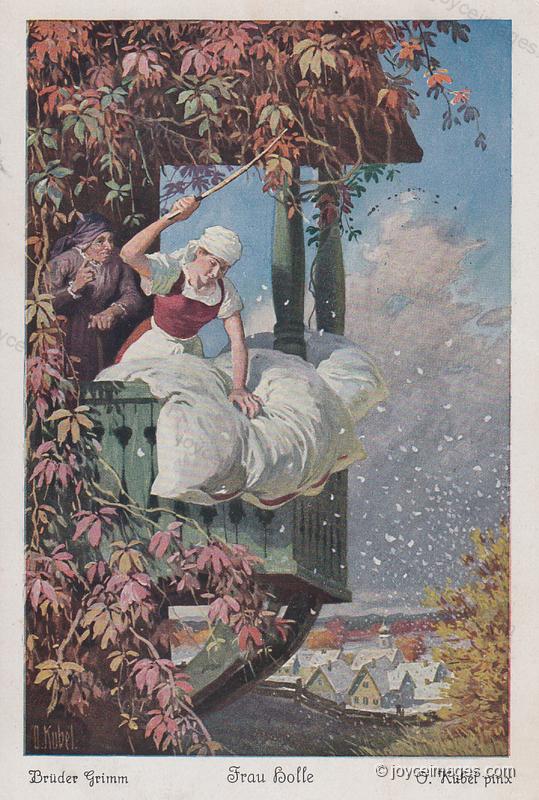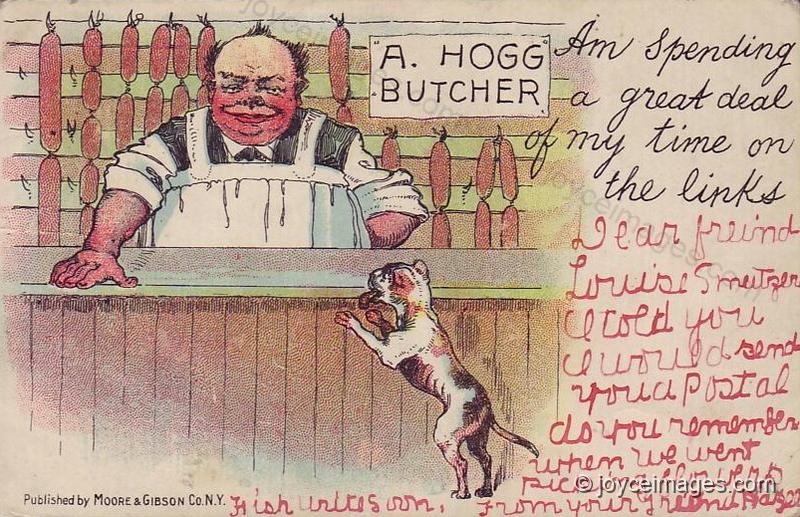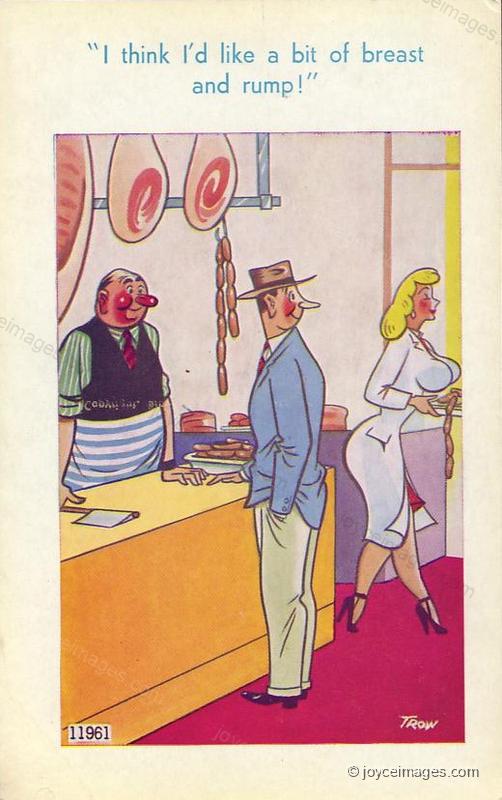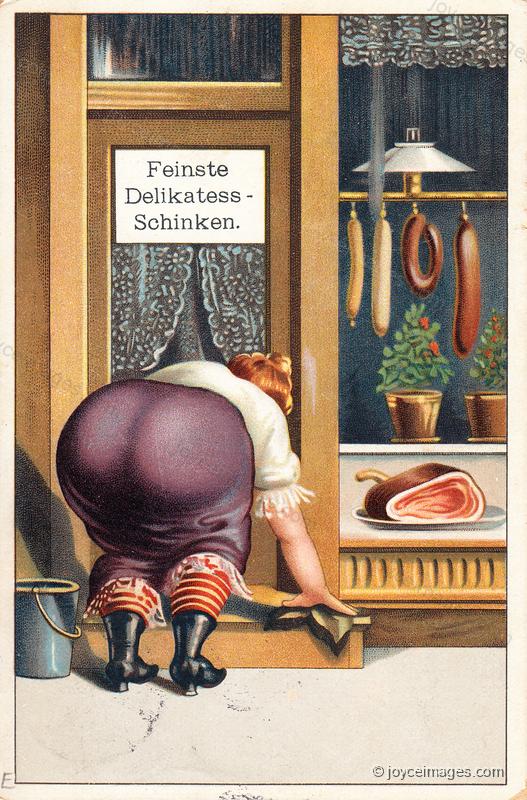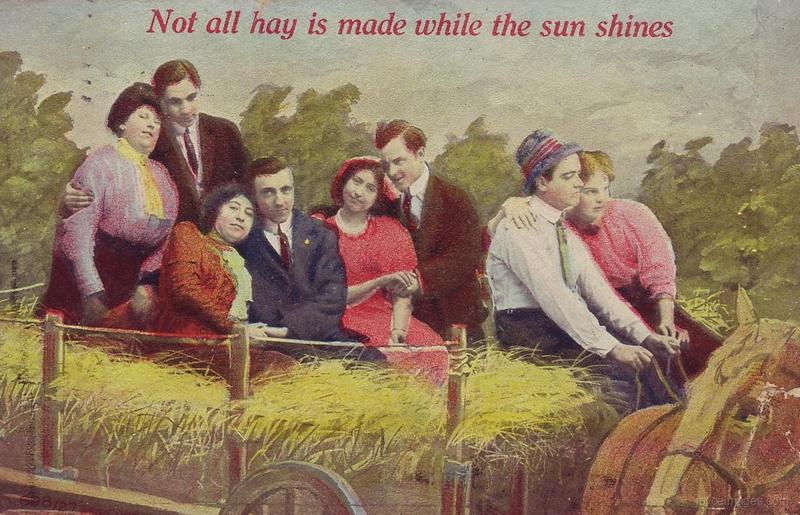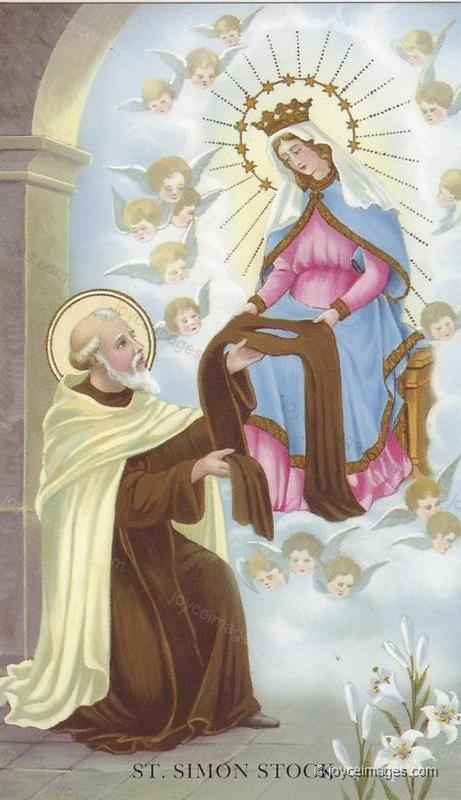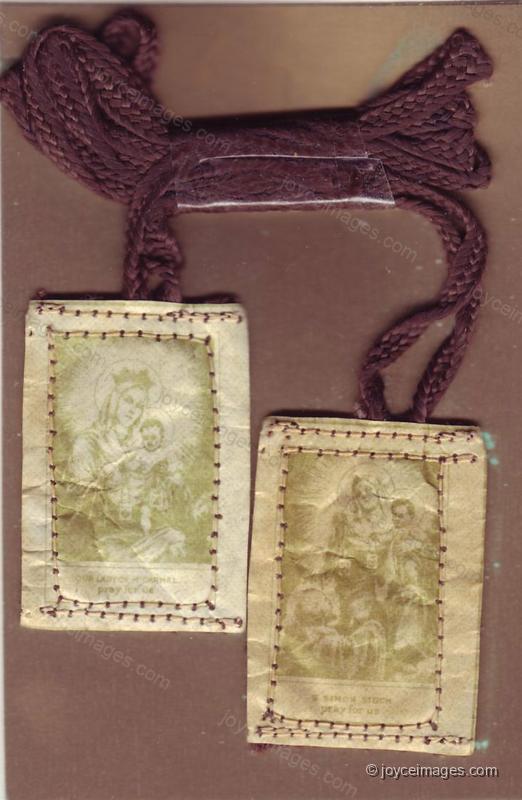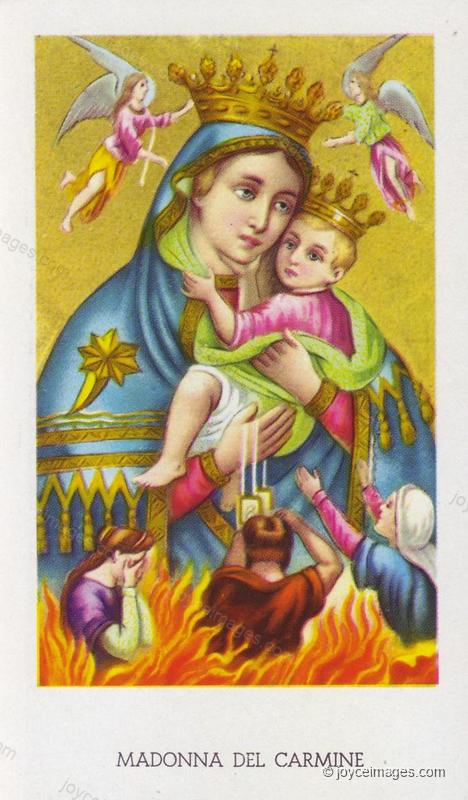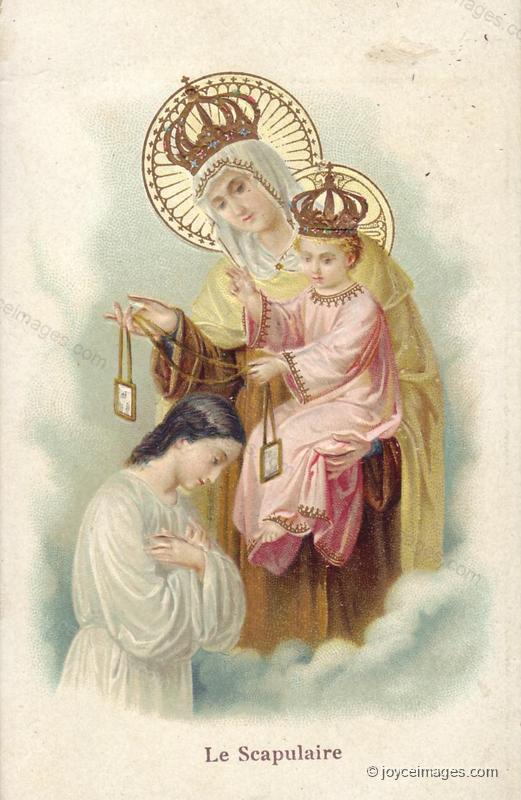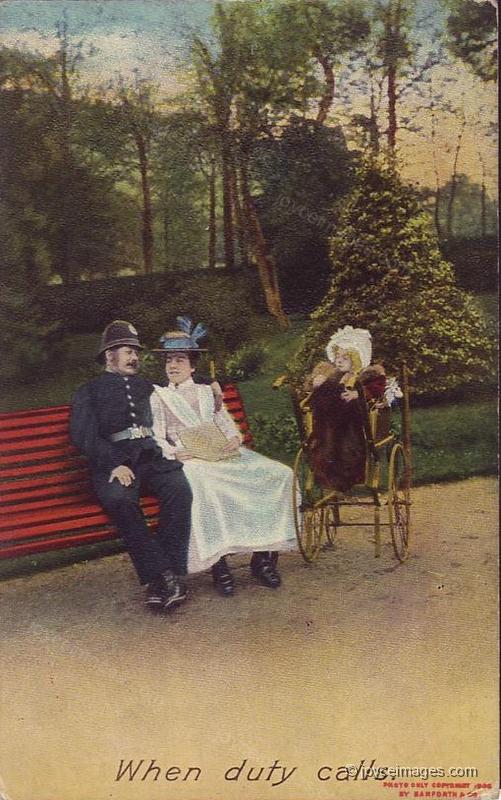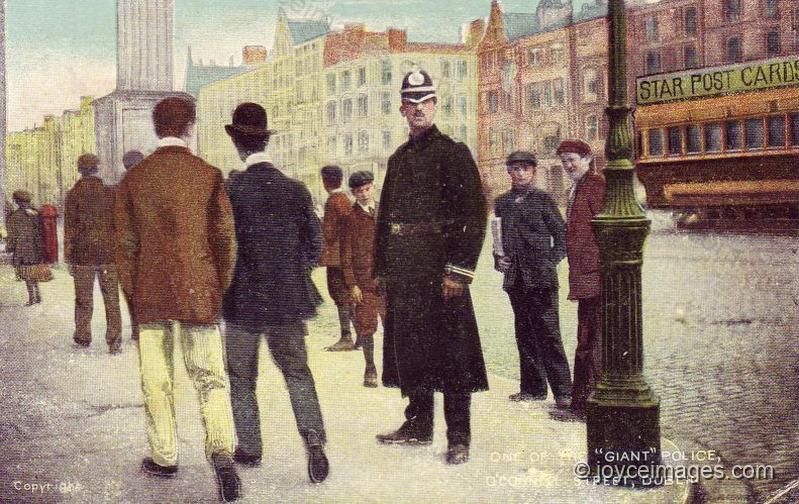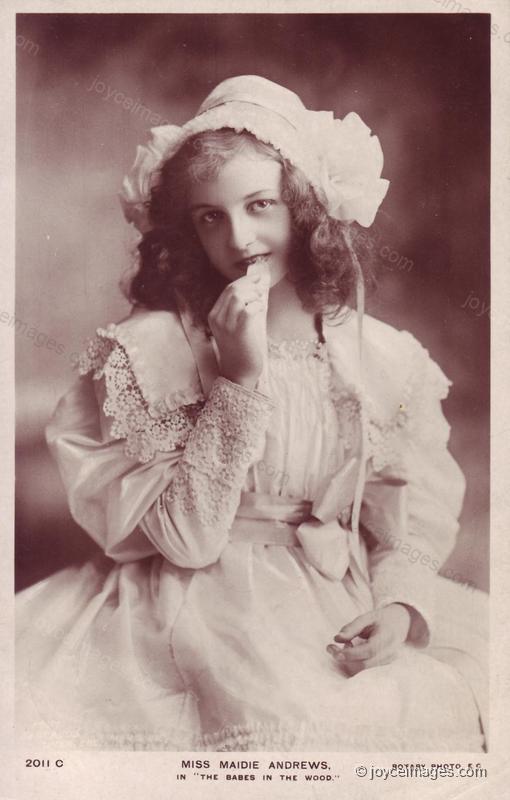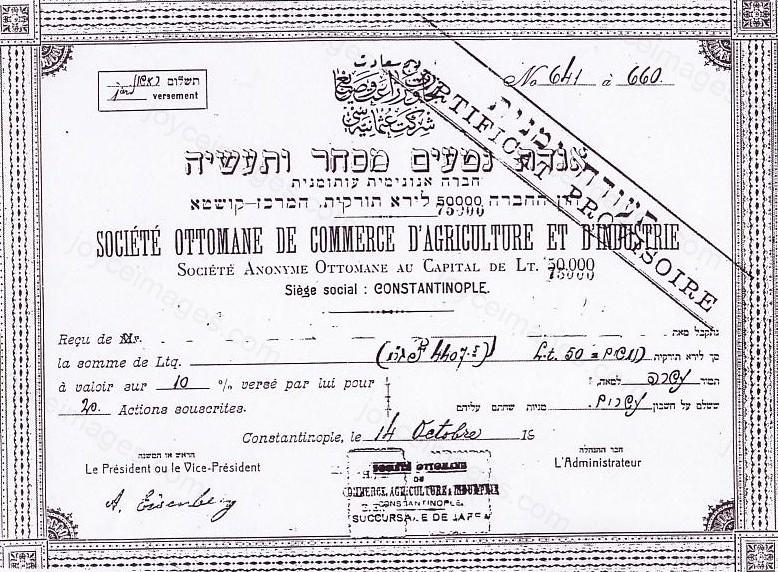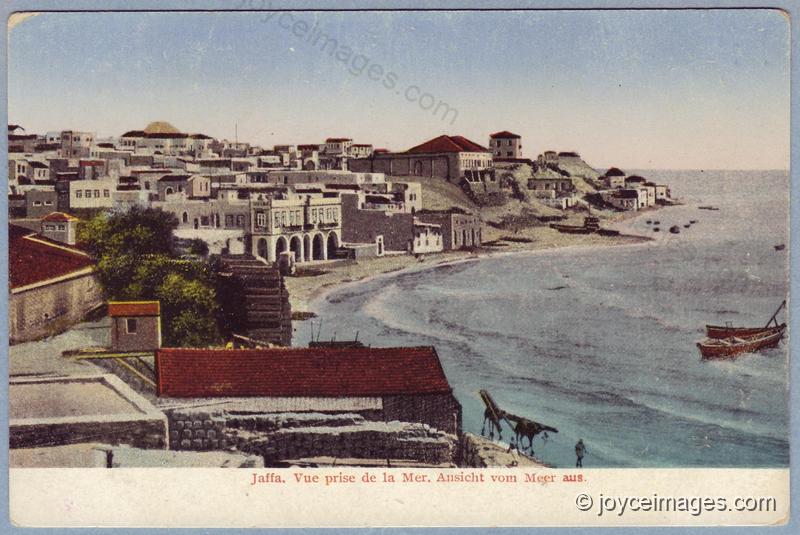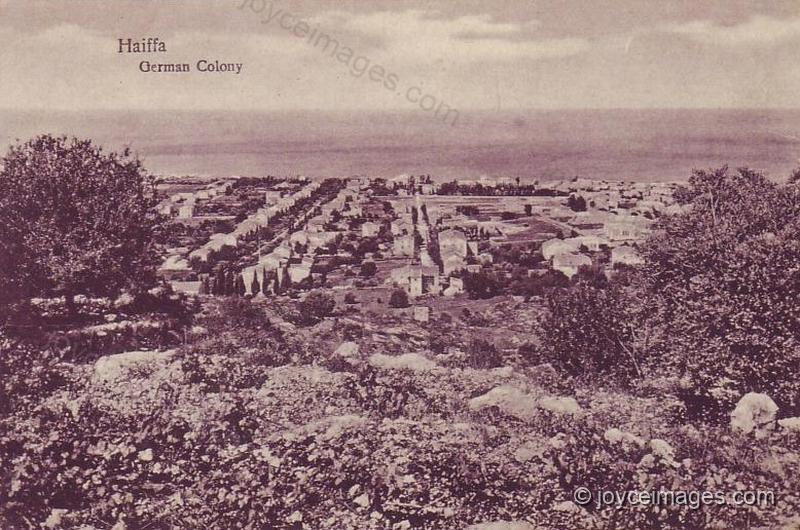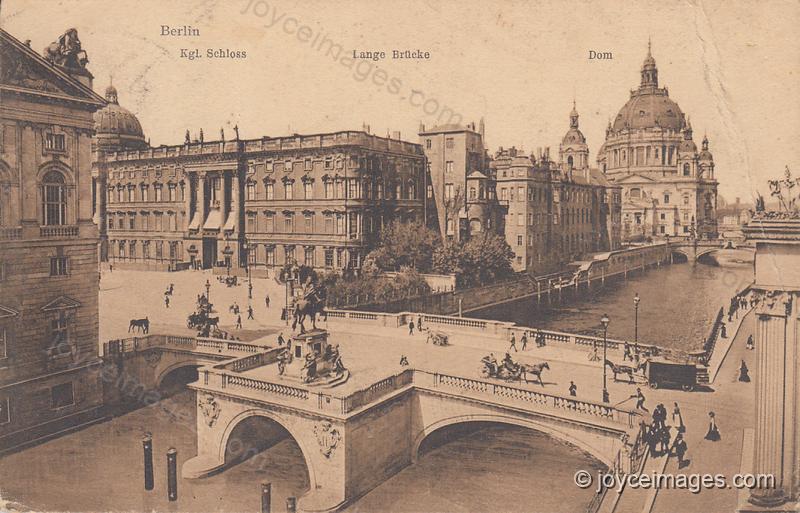"The porkbutcher snapped two sheets from the pile, wrapped up her prime sausages and made a red grimace.
- Now, my miss, he said.
She tendered a coin, smiling boldly, holding her thick wrist out.
- Thank you, my miss. And one shilling threepence change." (U4.165)
- Now, my miss, he said.
She tendered a coin, smiling boldly, holding her thick wrist out.
- Thank you, my miss. And one shilling threepence change." (U4.165)
"To catch up and walk behind her if she went slowly, behind her moving hams. Pleasant to see first thing in the morning. Hurry up, damn it." (U4.171)
"Make hay while the sun shines. She stood outside the shop in sunlight and sauntered lazily to the right. He sighed down his nose: they never understand. Sodachapped hands. Crusted toenails too." (U4.173)
"Brown scapulars in tatters, defending her both ways." (U4.176)
The scapular is a distinctive apron-like garment of the Carmelite order. It consists of two strips of brown cloth, worn on the breast and back, and fastened at the shoulders. The scapular was given to St Simon Stock by the Virgin Mary (in 1251), with the promise that "no one who dies clothed in this will suffer eternal fire." It was widely adopted by lay people, in a sodality affiliated with the Carmelites. Originally, the scapular had to be of 100% brown wool, but later any suitable brown material became acceptable.
The scapular is a distinctive apron-like garment of the Carmelite order. It consists of two strips of brown cloth, worn on the breast and back, and fastened at the shoulders. The scapular was given to St Simon Stock by the Virgin Mary (in 1251), with the promise that "no one who dies clothed in this will suffer eternal fire." It was widely adopted by lay people, in a sodality affiliated with the Carmelites. Originally, the scapular had to be of 100% brown wool, but later any suitable brown material became acceptable.
The scapular, with time, became a symbolic version of the actual monastic habit. It consists of two small brown rectangular patches connected by two thin brown cords. They hang over the shoulders in front of and behind the wearer. They often carry images (Our Lady, St Simon, the Sacred Heart). Usually Catholics wear the scapular under their regular clothing. This one is home made, I think the cords are shoe laces.
In this holy card, the scapular is held by Our Lady of Mt Carmel (it is one of her attributes). The damned are desperately, but too late, trying to reach for it. Besides the scapular, Catholic objects of personal devotion, that defend them from evil in more than two ways, include relics, the rosary, holy water, holy medals, and Agnus Dei.
This holy card shows Our Lady of Mt Carmel and Jesus placing a scapular on a nextdoor girl. Although not as popular as it once was, the wearing of the scapular is today, according to a Catholic News Service report, second only to the rosary as an object of personal devotion. Pope John Paul II wore one.
"The sting of disregard glowed to weak pleasure within his breast. For another: a constable off duty cuddling her in Eccles Lane." (U4.176)
"They like them sizeable. Prime sausage." (U4:178)
There was a minimum height requirement of 5 ft. 9 for the Dublin police.
There was a minimum height requirement of 5 ft. 9 for the Dublin police.
"O please, Mr Policeman, I'm lost in the wood.
- Threepence, please.
His hand accepted the moist tender gland and slid it into a side pocket. Then it fetched up three coins from his trousers' pocket and laid them on the rubber prickles. They lay, were read quickly and quickly slid, disc by disc, into the till.
- Thank you, sir. Another time.
A speck of eager fire from foxeyes thanked him. He withdrew his gaze after an instant. No: better not: another time.
- Good morning, he said, moving away.
- Good morning, sir.
No sign. Gone. What matter?
He walked back along Dorset street, reading gravely. Agendath Netaim: planters' company." (U4.179)
- Threepence, please.
His hand accepted the moist tender gland and slid it into a side pocket. Then it fetched up three coins from his trousers' pocket and laid them on the rubber prickles. They lay, were read quickly and quickly slid, disc by disc, into the till.
- Thank you, sir. Another time.
A speck of eager fire from foxeyes thanked him. He withdrew his gaze after an instant. No: better not: another time.
- Good morning, he said, moving away.
- Good morning, sir.
No sign. Gone. What matter?
He walked back along Dorset street, reading gravely. Agendath Netaim: planters' company." (U4.179)
"To purchase waste sandy tracts from Turkish government and plant with eucalyptus trees. Excellent for shade, fuel and construction." (U4.192)
[Image courtesy of the ZJJF]
[Image courtesy of the ZJJF]
"You pay eighty marks and they plant a dunam of land for you with olives, oranges, almonds or citrons. Olives cheaper: oranges need artificial irrigation. Every year you get a sending of the crop. Your name entered for life as owner in the book of the union. Can pay ten down and the balance in yearly instalments." (U4.194)
